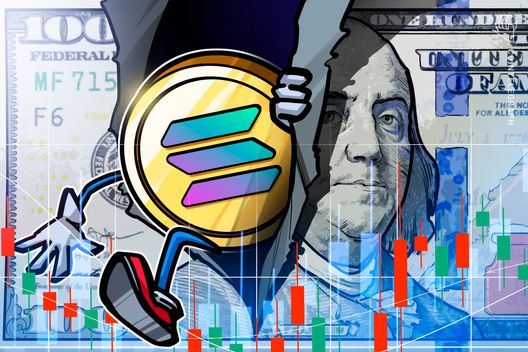In the evolving landscape of cryptocurrency, Solana is carving out a significant niche, particularly in the realm of stablecoins and tokenization. Matt Hougan from Bitwise has recently highlighted that Solana’s exceptional speed and transaction finality are making it a preferred choice among Wall Street investors, despite the ongoing dominance of Ethereum in the broader market.
“Solana’s performance positions it favorably as the industry continues to explore the potential of stablecoins and tokenized assets,” Hougan noted, underscoring the increasing interest from institutional players.
As the cryptocurrency world continuously shifts, Solana’s innovative capabilities are attracting attention for their reliability and efficiency, showcasing its potential to not just compete but thrive alongside established networks like Ethereum.
The growing interest in Solana reflects a broader trend in the market where speed and efficiency are becoming paramount, especially for financial institutions looking to harness the benefits of blockchain technology without the scalability issues that have plagued other chains. This evolving narrative is crucial as we witness the intersection of traditional finance and digital assets.
Solana: Wall Street’s Top Choice for Stablecoins and Tokenization
Key points regarding Solana’s appeal as highlighted by Bitwise’s Matt Hougan:
- Speed: Solana’s transaction speed surpasses that of many competitors, allowing for high-frequency trading and seamless transactions.
- Finality: Quick finality times make Solana a reliable platform, reducing the risk associated with trade settlements.
- Wall Street’s Preference: Major financial institutions are increasingly looking to Solana for stablecoin solutions and tokenization, potentially reshaping the landscape of digital finance.
- Ethereum’s Dominance: While Ethereum remains a leading platform, Solana’s unique advantages may challenge its supremacy in certain use cases.
The integration of Solana into financial services could drastically influence trading strategies and investment approaches.
Solana vs. Ethereum: The Battle for Wall Street’s Attention
Bitwise’s Matt Hougan has highlighted an intriguing shift in Wall Street’s preferences, positioning Solana as a frontrunner for stablecoins and tokenization. With its remarkable speed and finality, Solana is rapidly becoming a competitive alternative to Ethereum, which has long been the dominant player in the blockchain space. While Ethereum offers a well-established ecosystem with a vast array of decentralized applications (dApps) and robust developer support, Solana’s lightning-fast transaction times and lower fees present significant advantages for institutional investors looking to capitalize on the evolving crypto landscape.
One of the most compelling benefits of Solana is its ability to handle a much higher throughput than Ethereum, making it an attractive option for trading and financial services that require rapid transaction processing. This can create opportunities for firms aiming to innovate within their investment strategies or create new financial products. On the flip side, Ethereum’s reputation and established network effect might lead some conservative investors to stick with what they know, even if it means higher fees and slower processing times.
However, the excitement surrounding Solana could also pose challenges for Ethereum, especially if key projects begin to migrate to its more scalable platform. This could potentially drive competition and innovation away from Ethereum, impacting the network’s growth and user engagement. Additionally, for businesses and developers, the influx of interest in Solana could lead to a fragmented ecosystem where users need to navigate between multiple blockchains, complicating integration efforts.
Ultimately, those who stand to benefit most from Solana’s advancements are forward-thinking investors and tech-savvy developers eager to leverage cheaper and faster transactions. Conversely, traditional financial institutions that are heavily invested in Ethereum may find themselves at a divergence point, facing the choice of adapting to new technologies or risk falling behind in a rapidly evolving market.

















